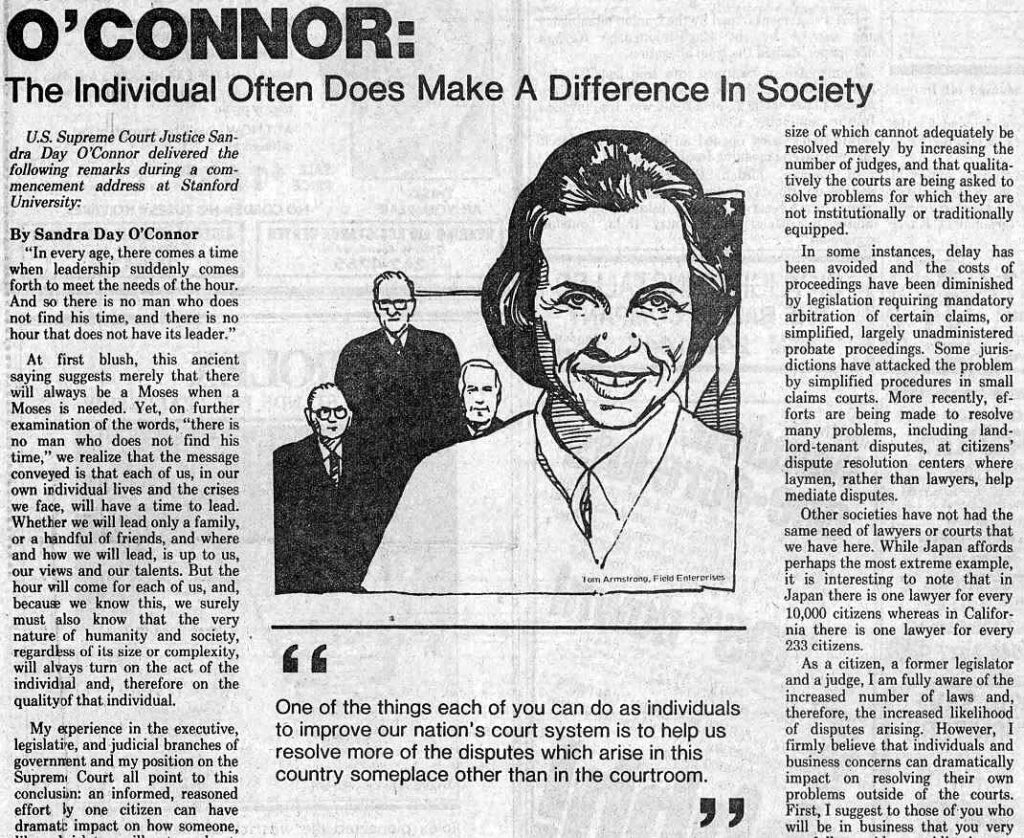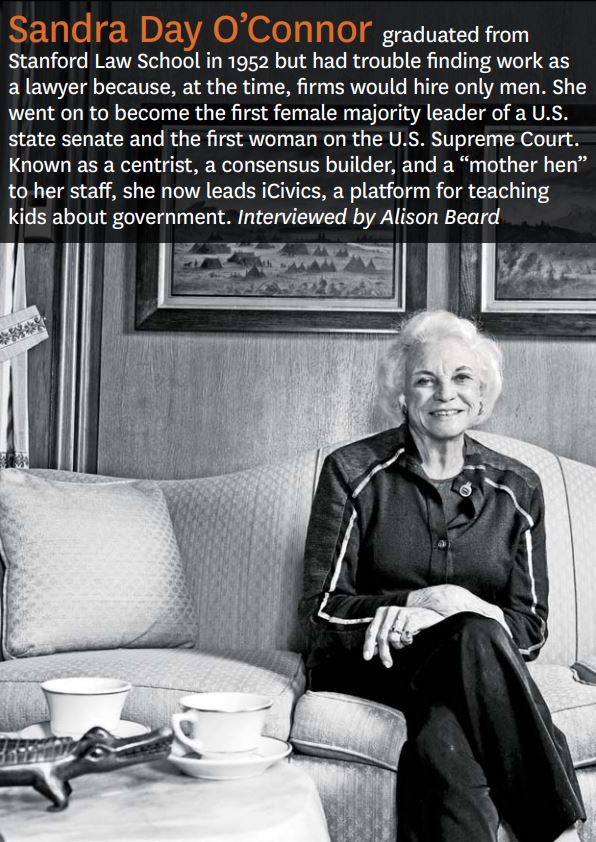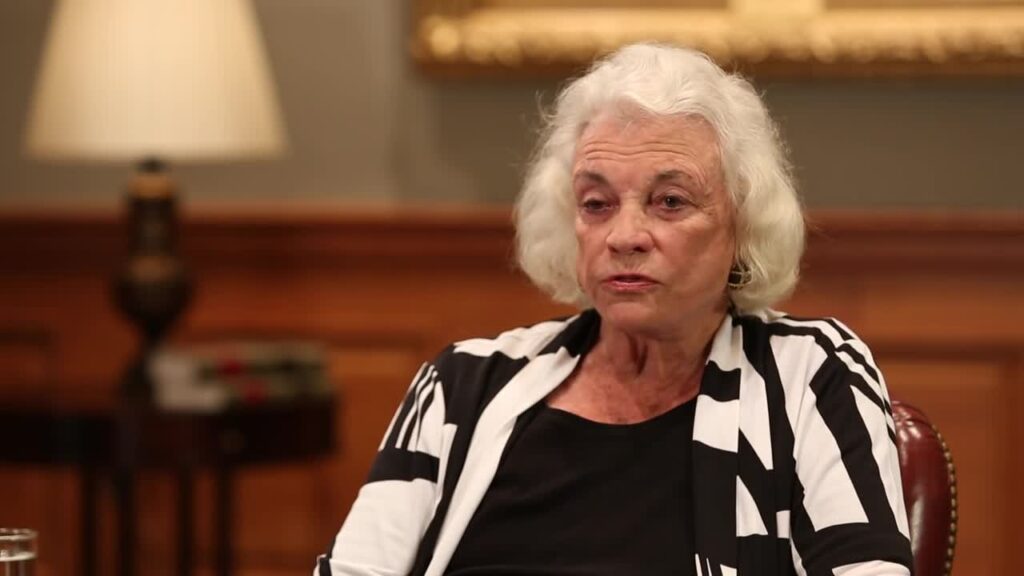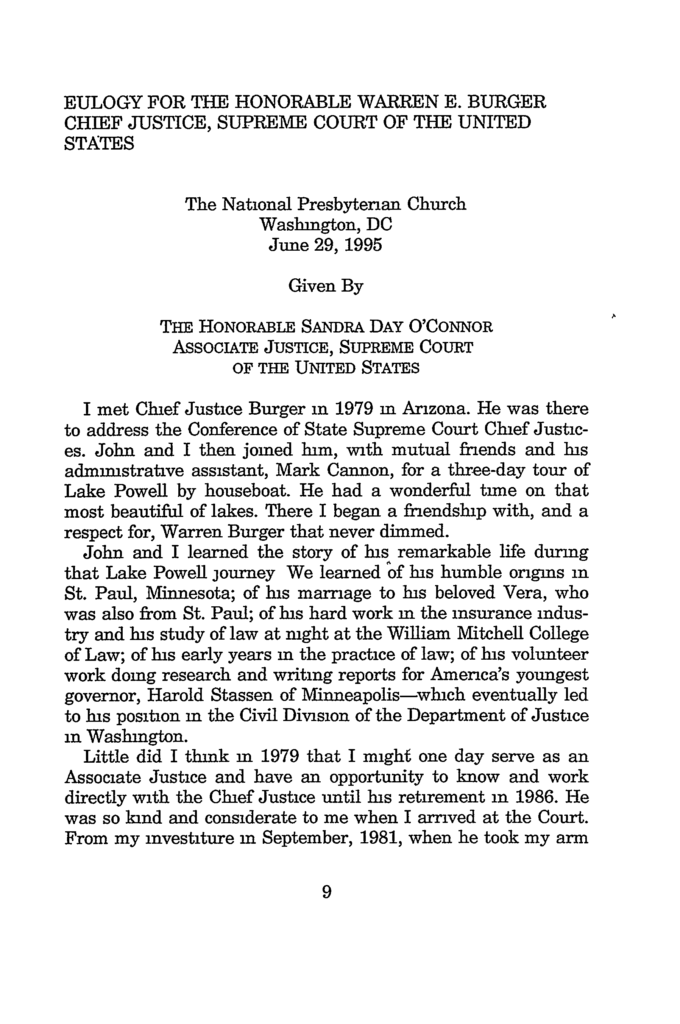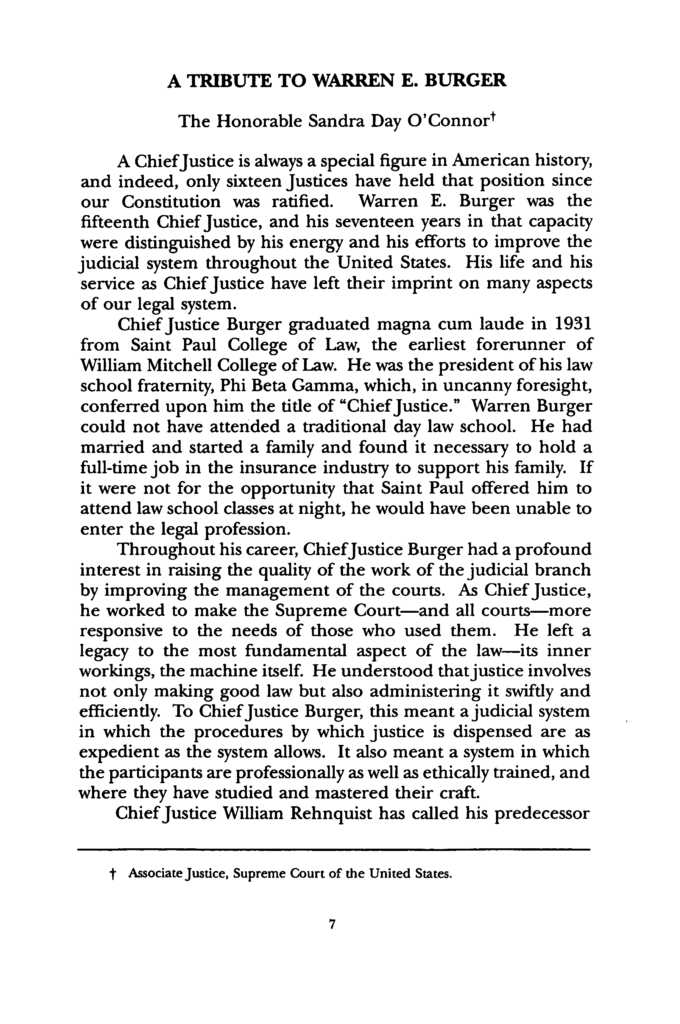We Need a Clear Set of Rules to Reaffirm Our Values as a Nation
It is a great privilege and honor to be at West Point today. The beauty and history of this institution make it one of our nation’s most treasured places. To be here and receive the Thayer Award, and to review a Parade is the experience of a lifetime. The previous recipients have most often been people with substantial military experience, such as General Colin Powell, Senator Robert Dole, and General Douglas MacArthur. By comparison, I am merely a sideline observer. Even Bob Hope – who came here to receive the award in 1968 – had more military experience than I do. As a result, West Point is making a bit of an exception in presenting the award to a mere Supreme Court Justice.
I understand that the Thayer award is supposed to be given to an “outstanding citizen of the United States whose service, accomplishments, and stature exemplify personal devotion to the ideals expressed in the West Point motto, “DUTY, HONOR, COUNTRY.” That is a wonderful and grand motto. I have been tested a bit lately on the “duty” front: As many of you know, I did my best to retire from the Supreme Court this summer. The President nominated Judge John Roberts to be my successor, and I assumed I might be trout fishing in Montana or seeing my grandchildren in Arizona on the first Monday of October, when the new term started. Then the nation learned of the sudden death of our Chief Justice, William Rehnquist. He served on the Supreme Court for 33 years in all and was a great Chief Justice. He was also a

